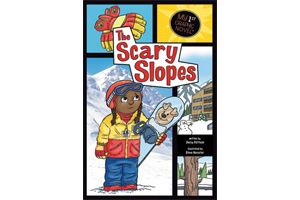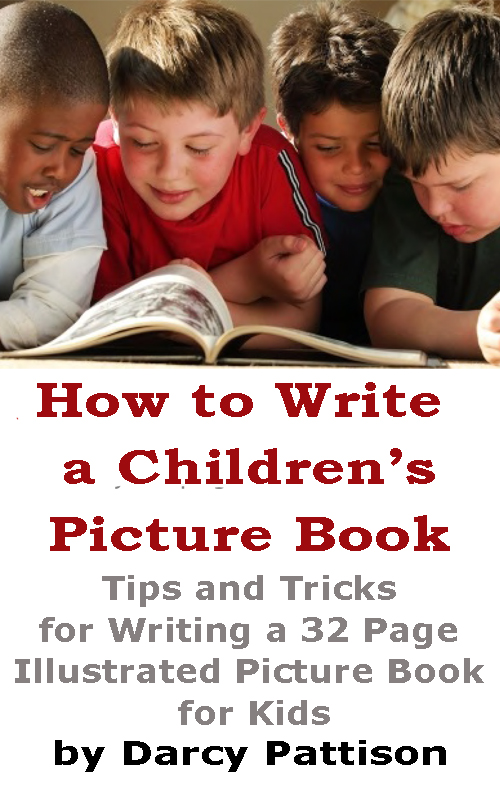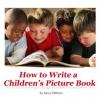By Anatoly Liberman
Here, for a change, I will present two words (cuss and bust) whose origin is known quite well, but their development will allow us to delve into the many and profound mysteries of r. Both Dickens and Thackeray knew (that is, allowed their characters to use) the verb cuss, and no one had has ever had any doubts that cuss means “curse.” Bust is an Americanism, now probably understood everywhere in the English-speaking world. The change of curse and burst to cuss and bust seems trivial only at first sight.
The sound designated in spelling by the letter r differs widely from language to language. Even British r is unlike American r, while German, French, and Scots r have nothing in common with Engl. r and one another. All kinds of changes occur in vowels and consonants adjacent to r. Those who know Swedish or Norwegian are aware of the peculiar pronunciation of the groups spelled rt, rd, rn, and rs. In some Germanic languages, postvocalic r tends to disappear altogether. In British English, it seems to have merged with preceding vowels some time later than the beginning of the seventeenth century, because most dialects of American English have preserved postvocalic r; in their speech, father and farther, pause (paws) and pours are not homophones.
In principle, nothing of any interest happened to Engl. r before s. But when we comb through the entire vocabulary, we occasionally run into puzzling exceptions. Thus, a common word for the waterfall is foss, an alteration of force. This force, unrelated to force “strength, might” (of French descent), is a borrowing from Scandinavian. Old Norse had fors, but in Old Scandinavian the spelling foss already turned up in the Middle Ages, and this is why I mentioned the treatment of rs (among other r-groups) in Swedish and Norwegian. Today in both of them rs sounds like a kind of sh to the ear of an English-speaker. Therefore, one could have expected Engl. fosh rather than foss. Forsch did occur in Middle Low (= northern) German, but the extant English form is only foss.
A similar case is the fish name bass. (I am very happy to return to the fish bowl.) All its cognates have r in the middle: Dutch baars, German Barsch, and so forth. The word is allied to bristle. Apparently, r was lost before s in Old Engl. bærs (æ had the value of a in Modern Engl. ban) but not without a trace, for the previous vowel was lengthened and developed into a diphthong, as in bane and its likes. In the name of the game prisoner’s base (a kind of tag with two teams, as probably everybody knows), base may go back to bars. If so, bass, the bristly fish, and base, the game in which participants find themselves behind “bars,” had a similar history. But the fish name is spelled bass instead of base, and this is one of the strangest spellings even in English (imagine lass and mass pronounced as lace and mace).

A bust of a ruler whose empire went bust.
To be sure, we have another bass “low voice,” also pronounced as base, but at least there is an explanation of that oddity. Italian basso was (quite correctly) identified with base “of low quality” and pronounced like that adjective, with the written image of the noun remaining intact. But why bass, the fish name? I could not find any discussion of this minor problem and will venture a conjecture. We have seen that in fors r was lost, and yet the preceding vowel did not undergo lengthening. Perhaps, once bærs shed r, it existed in two forms, with a short vowel (as happened in foss, from fors) and with a long one. The outcome of the compromise was to pronounce the word according to one form and to spell it according to the other. That is why English spelling is such fun. (Compare heifer: the written image reflects its development in the dialects in which the diphthong has been preserved, but the Standard form sounds heffer.)
Another fish name is dace, from Old French dars. Among the fifteenth-century English spellings we find darce and darse. It may not be due to chance that the loss of r before s occurs in words belonging, among others, to fishermen’s vocabulary and children’s lingo. Analogous cases are known from hunters’ usage. The phonetic change in question looks like a feature of unbuttoned and professional speech, for who would control the sounds of the “lower orders” and of the hunters’ jargon? The Standard treated it as vulgar. But fighting the street is a lost cause, though language does not develop from point A to B, C, and all the way to Z. It rather resembles an erratic pendulum; the norm of today may be rejected tomorrow, so that the conservative variant may prevail.
This is what happened in the history of the word first. In the pronunciation of many eighteenth-century speakers (in England), first was indistinguishable from fust- in fustian. Fust for first is not uncommon in today’s American English, but it is “substandard.” Also in the eighteenth century, nurse, purse, and thirsty occurred even in the language of the educated as nus, pus, and thustee. Shakespeare once has goss for “gorse,” and the idiom as rough as a goss has been recorded in the modern Warwickshire dialect. The devil is always worsted, but the fabric worsted is “wusted.” The place name Worstead is only for the locals to pronounce correctly. Those who are not afraid to be lost in this jungle may compare Worcester (UK), Worchester in Georgia and Massachusetts, and Wooster, Ohio. Rejoice that you are not reading a 1721 ad: “Thust things fust.”
This is then what happened to cuss and bust. Cuss, from curse, never left the low (base?) register, though everybody understands cussed and cussedness without a dictionary. Bust fared better (or worse, depending on the point of view). First (fust), its descent from burst isn’t always clear to the uninitiated, so that it became a word in its own right, rather than a shadow cast by burst. Second, although mildly slangy in the phrase go bust, it won a decisive victory in its derivative buster. (Do many people still remember that Theodore Roosevelt was called Trust Buster?) The word’s popularity was reinforced by Buster Brown, the character and the shoes. The “street” scored an important point — so much so that blockbuster is no longer slang. It may perhaps be called colloquial, but it has no synonym of equal value. A blockbuster is a blockbuster.
Perhaps someone is interested in the origin of bust, as in sculpture or in the ads for those women who suspect that their bust is inferior to that of Mrs. Merdle of Little Dorrit fame. It is a borrowing of Italian busto, a word, I am happy to report, of highly debatable etymology.
 Anatoly Liberman is the author of Word Origins…And How We Know Them as well as An Analytic Dictionary of English Etymology: An Introduction. His column on word origins, The Oxford Etymologist, appears here, each Wednesday. Send your etymology question to him care of [email protected]; he’ll do his best to avoid responding with “origin unknown.”
Anatoly Liberman is the author of Word Origins…And How We Know Them as well as An Analytic Dictionary of English Etymology: An Introduction. His column on word origins, The Oxford Etymologist, appears here, each Wednesday. Send your etymology question to him care of [email protected]; he’ll do his best to avoid responding with “origin unknown.”
Subscribe to Anatoly Liberman’s weekly etymology posts via email or RSS.
Subscribe to the OUPblog via email or RSS.
View more about this book on the 

Image credit: 17th century marble bust, from Florence, Italy, of Vespasian, (9-79), first roman emperor of the flavian dynasty, on display at Château de Vaux le Vicomte, France. Photo by Jebulon, 2010. Creative Commons CC0 1.0 Universal Public Domain Dedication. Source: Wikimedia Commons.

It’s a basic question: what is point of view and when do you use which point of view (or POV) in a novel?
Point of view refers to the basic outlook of your story, who narrates it.
First-person POV is firmly in a character’s head and told as if the character was narrating the action. It uses “I, me, my, myself” to indicate the narrator. Another description is to consider the placement of the story’s camera. Here, the camera sits firmly behind the character’s eyes. What the narrator thinks, the reader knows.
I am scared to try back handsprings at the football game tonight because I haven’t practiced enough.
Second-person POV uses “you” as it talks directly to the reader. It’s considered an awkward POV for most fiction, although there are, of course, exceptions. Camera placement here would be above the narrator’s head, pointed at the reader.
You will notice that the cheers will come out with a series of aerials, including back handsprings.
Third-person POV uses “he, she, it, they” pronouns as it refers to people and events. For this POV, we often speak of how “close” it is to the narrator. Close 3rd person POV puts the camera directly above the main character’s head and the camera placement tells the reader about what the character is paying attention to, what s/he is thinking. It is different from the 1st person POV, in that, we don’t know the narrator’s thoughts directly, but only indirectly. Sometimes, the Close 3rd gives information and the reader assumes the character thought that, said that or did that.
She hesitated, then with a burst of energy, she sprinted then threw herself forward into a back handspring.
The 3rd person POV can also draw back and be more detached, a recitation of a narrative from a more objective POV. The nicest thing is that this POV can change focal length at will, drawing back to describe a football field, then zooming in to the cheerleader as she does a back handspring and feels a muscle tear.
Her hands pushed off the grass and she catapulted over, a perfect back handspring, until—oh, no! Just as she landed, her ankle, it gave way. Pain shot through her foot and she collapsed.
Omniscient POV puts the camera on the ceiling looking down at everyone. It dips in and out of character’s thoughts and gives a comprehensive look at anything and everything the author wants. It’s difficult to pull off, too, because the reader is uncertain where to focus. If done badly, the reader may try to identify with too many characters and fail to really care about any of them.
Bored, her Mom glanced up from her text message in time to see Betty sprint for the handspring. Would this game never end?
Oh, no! Pain shot through Betty’s foot. Mom, she thought, Mom. Where are you?
Notice that this is a discussion of point of view, not verb tense. You can write in 1st person, present tense or 1st person, past tense:
1st person, present tense: I walk across the football field.
1st person, past tense: I walked across the football field.
The difference in verb tense definitely affects the overall tone and voice of your novel, so you should consider it, too, when you write.
Use this photo and try writing from the POV of the climber, from each of the observers, and from an omniscient POV. Each POV will include and

Brooke and her family are headed to the mountains for vacation. Brooke wants to snowboard, but she is scared. Her sister, Amy, isn’t scared at all. Will Brooke be able to face her mountain fears? Or will she give up?
In this “First Graphic Novel,” new readers will learn to follow each panel in order and read a graphic novel or comic book. Exciting action for kids. When it’s hard to learn something new, Brooke keeps on trying.

I’m finally — after two major life events, a grandchild and my daughter’s wedding — ready to start a new novel. I’ve found two mentor texts that I’m hoping will show me something about how to proceed.
Novels to Imitate and Learn From
Educators often use mentor texts when teaching writing to kids. The idea is to choose texts that in some way model the type of writing you want as a result. This means you need a good vision for the end result, or the mentor texts you choose won’t help.
For my new novel, I know that I”ll have quite a few characters and that the POV will probably change often; each section might be quite short; that I might be playing with 3rd person and omniscient POVs. I’ve been looking around and found two that are interesting in this respect.

The first is the 1979 Newbery book, The Westing Game by Ellen Raskin. It features over a dozen characters; it moves in and out of omniscient and 3rd; it has very short sections. Interestingly, Kathi Appelt’s Newbery Honor book, The Underneath, also features multiple characters and she uses short chapters, changing POV often.
Permission and Hope. From these texts, first, I have permission to break the rule of only one main character, one main POV. That’s important. It can be done and done well. Which also gives me hope!
Direction to Start. I’m looking to these two texts as a direction for my first efforts. That does NOT mean I intend to write with a Raskin/Appelt voice. I expect to produce something quite different. Still, this is a place to start.
Reference and Teaching. I hope to learn how to move from POV to POV and keep the pacing fast, interest high, and reader involvement at the maximum. I think it will be helpful to refer to these mentor texts as I write the first draft; but I think it will be even more helpful as I work on revision later.
So, this week, I’m hoping to make a start, write a couple exploratory pieces, outline, work on character sketches. It’s a start.
Few rewards are as fun as taking that first spin in you own car.
In my case it started out pretty quick to be “First series Chevy” trucks and through the years I have had seven that ran and this one will be my last I think.
Not because I wouldn’t want a thousand more but gas and the the roar of engines with a smell of burnt petroleum smokin from the tires is almost past to the status of legends.
Carburetors are tossed for EFI 350 V8 blocks or some such but give me that old stove bolt 6 that sounds like a well oiled sewing machine any day.
Gas that once was cheap even for a $0.75 an hour kid is hard to justify but I will until the dinosaurs give up the last drop I can afford just to feel the freedom of wind blowing through the cowl vent, windows down even in mid winter, the purr of early iron and finicky gauges bopping with the bumps and Mr. Butterfield’s ”East West” drifting with the breeze around my head from cheap speakers and a shared drink stashed between me and my girl.
There are few finer feelings than nowhere particular to go, all day to get there in no particular hurry.
Keep um rollin!







Sorry, folks. There's going to be a three hour delay. At least.
Aaaaargh! The world is supposed to keep pace. Our planes shouldn't be late; our reserved tables must be ready; our overnight packages have to arrive as promised. And don't get me started on traffic jams.
But in order to write, I have to purposely delay. Not delay writing---that's easy---you just start picking fuzzballs off the couch cushions and see how many will fit in an old root beer bottle. I mean delay judgment.
This thought didn't come to me while tidying up the couch. I got it from the pages of Eric Booth's book, The Everyday Work of Art. He says that all artists master the skill of holding an idea, an object, or a thought in their gaze of attention for as long as possible without forming a judgment about it. Booth uses some fancy words, "mastering the gestalt default," but what he means is that artists are aware of their own natural instinct to categorize and label new things instantly, and through practice, get better and better at resisting that instinct.
This is contrary to how we operate in the real world. In class, it's important that you come up with the correct answer before the teacher gives the "A" to someone else. While driving, it's crucial you label the guy in the red car an "idiot" before he kills you. And if you stand at a Starbucks counter too long, not forming a judgment about the high cheekbones of your barista, he will just add another shot of espresso to your order and tell you he's not allowed to talk to women over forty.
I think this delaying is precisely what I enjoy about freewriting. I can jump into the stream and float along without wondering where it's going. It's truly an odd feeling, if you're not used to it. At first, I felt that extended freewriting was like pushing a wall of water uphill. How could I keep filling the pages of my notebook with nonsense? Later, I would find a poem, scattered like bits of polished rock, on the river bed of that nonsense, and be glad.
I still find freewriting difficult when I'm using it to come up with new material for a book. I keep trying to dam up my thinking, force it to flow down the course I've set for it: Chapter Five. But it doesn't work that way. I have to float, not row.
How long can you look at an apple without calling it an apple? How long can you freewrite about bees without using the word "buzz"? How long can you hear musical notes without framing them as a song? Truly, we don't need to set aside time to make judgments about what we encounter each day; we do that naturally. But delaying? That takes real skill.
Anatoly Liberman is the author of Word Origins…And How We Know Them as well as An Analytic Dictionary of English Etymology: An Introduction. His column on word origins, The Oxford Etymologist, appears here, each Wednesday. Send your etymology question to him care of [email protected]; he’ll do his best to avoid responding with “origin unknown.”
![]()
![]()














 How to Write a Picture Book
How to Write a Picture Book




I've been happily busy browsing your site & blog. Great stuff, Steve! :D